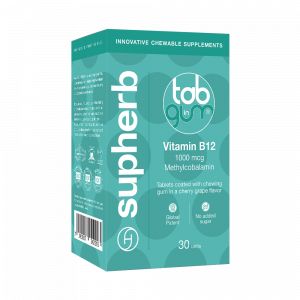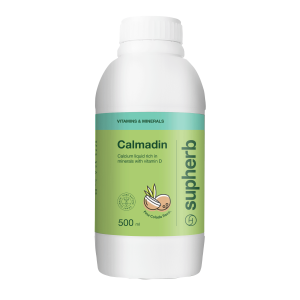- Home
- Multivitamins
- Bariatric Surgery: The Complete Guide
Bariatric Surgery: The Complete Guide
- Nearly 50% of adult population is overweight, 5% of which are morbidly obese.
- Obesity carries health related ramifications; it increases likelihood of developing comorbidity.
- Bariatric surgery for the purpose of losing weight requires adopting lifestyle changes before and after the surgery.

Obesity is common in the Western world and is accompanied by comorbidity. Many people seek surgical solutions for dealing with this issue. You can find everything you need to know about bariatric surgery in this article.
Obesity is a common phenomenon. Nearly 50% of the world’s adult population is overweight, 5% of which suffer morbid obesity. Here are the BMI standards according to which obesity is defined: 30-35 BMI is defined as overweight; 35-40 BMI is considered obesity and over 40 BMI is considered morbid obesity.
Obesity has an important genetic component, but the environment, lifestyle and Western culture also have significant effect. The combination of too little exercise and eating fast food is at the basis of this obesity pandemic.
Consequences of obesity
Obesity increases the likelihood of developing comorbidity, such as hypertension, type 2 diabetes, heart and vascular diseases, strokes and others. Morbid obesity carries health hazards and is a significant risk factor in comorbidity.
Small change – big difference
Even a 10% weight loss could improve your health and lower your chances of developing comorbidity.
Causes for morbid obesity
Awareness to the causes for morbid obesity can help in properly dealing with it.
- Genetics: there’s evidence of a genetic component as a major risk factor in obesity. Body type and the way fat distributes changes from one person to another, and in some cases there’s also a genetic component related to increased appetite.
- Secondary illness-related obesity: certain pathologies entail weight gain, such as hypothyroidism (when unbalanced), Cushing’s syndrome and depression.
- Mental health factor: mental illnesses and emotional issues can be related to the tendency to gain weight, as does the use of certain types of medicine.
- Inflammation: one of the most significant factors that lead to obesity is poor diet and lack of exercise, which disturb the caloric balance. Obesity itself acts as a factor that turns to worsen when untreated, which is accompanied by various inflammations, hormonal changes, a decrease in receptor sensitivity for insulin and leptin.
Obesity- surgical solution for weight loss
Recurring attempts to cope with overweight are often unsuccessful and so an increasing number of people turn to bariatric surgery to help them lose weight. However, any type of gastric bypass surgery is only the first stage of the process and also requires a behavioral change, as well as significant lifestyle changes.
Preparing for bariatric surgery
Bariatric surgery requires lifestyle changes before and after the operation. Bariatric surgeons recommended losing at least 10% of one’s body weight prior to undergoing bariatric surgery.
Preliminary dietary counselling is a significant step in the process, meant to explain the dietary requirements and changes necessary prior and after performing the bariatric surgery.
Pre bariatric surgery diet
Pre bariatric surgery diet usually starts 2-3 months before the operation and is set according to the patient’s health, weight and bodily component; the surgeon or dietician will recommend the bariatric surgery candidate to start a diet that contains between 800-1200 calories a day. It’s recommended to enrich the diet with protein and reduce carbs and fat intake considerably, especially refined sugars and saturated fats. In addition, it’s recommended to drink large amounts of water and perform mild exercise.
A regular supplementation of vitamins and minerals can be very useful in the pre-surgery stage, in order to help patients reach their dietary goals.
Bariatric surgery – for weight loss
Bariatric surgery is, in fact, an operation for weight loss that reduces stomach size, decreases food intake into the stomach and aids in a significant reduction of body weight. In most types of surgeries, the results of this process are irreversible and demand a lifetime commitment of maintaining a healthy lifestyle from the patient. Bariatric surgery not only helps with weight loss but can also help in improving general health and the patients’ self-image.
Common types of bariatric surgery
Gastric bypass surgeries affect digestion through limiting food intake and its volume onto the stomach, and a prolonged satiation as a result.
These are the most common types:
- Gastric bypass
- Gastric Ring surgery
- Gastric sleeve surgery
Post-bariatric surgery diet
It’s very important to act according to the specific dietary instructions following a bariatric surgery, as they’ll ensure a quick and proper healing. The main reason bariatric surgeries fail is not complying with the nutritional instructions given by the surgeon and/or the dietitian for port-operation eating.
The eating habits will dramatically change right after the operation, in ways that will greatly affect the patient’s lifestyle forever. It usually takes between 9-12 weeks until the patient can eat solid food again.
The recommendations are protein-rich nutrition of about 50-60g a day for women, 60-70g a day for men. It’s usually impossible to consume such high amounts of protein from food alone, during the first month after the surgery, which is why most patients use varied protein supplements and keep using them as a source of protein for their entire life.
Supplements are nutritionally important after bariatric surgery
Supplements are important after bariatric surgery in order to provide the body with the vitamins, minerals, proteins and other vital nutrients. The capacity of the stomach drastically changes and doesn’t allow a lot of food in, which can cause nutritional deficits. Another issue has to do with the anatomical changes and their effect on the absorption of vital nutritional components. In order to stay healthy, supplementing vitamins and minerals is unmeasurably important after this type of operation.
Water and liquid intake in weight loss surgery patients
Drinking enough water and liquids is an important aspect to any diet and even more so with people who’d undergone bariatric surgery.
These are the drinking instructions:
- Avoid drinking liquid while eating. All liquids should be consumed between meals.
- Avoid soda drinks. The carbon in them might stretch the stomach lining or its exit.
- Your best choice is water. It’s also recommended drinking herbal tea and watered-down fruit juices.
Physical activity after bariatric surgery
Physical activity is key to achieving the body you desire following bariatric surgery. You should start exercising gradually. Try at least 30 minutes of exercise a day. The training program should start at the pre-operation stage, and you can go back to it as soon as the doctor will allow you to do so post-operation. Any physical activity or training program has to be supervised by your physician.
A set training program contributes to the weight loss process and maintaining it, but also:
- Solidifies the muscles
- Increases your energy
- Speeds up your metabolism
- Tightens the access skin due to the sharp weight loss
- Decreases the chance of cardiovascular diseases
- Regulates blood pressure
- Gives an overall better sensation and improves your mood
Taking supplements is crucial after gastric bypass surgery!
Surgeons and dietitians agree that vitamin and mineral supplements are essential for the prevention of vitamin and mineral deficiency after bariatric surgery. Taking vitamin and mineral supplements are considered essential for people who’d undergone weight loss surgery. Gastric bypass surgery and other bariatric surgeries dramatically change the boy’s ability to absorb vitamins, minerals and major food groups. Therefore, the risk for mineral and vitamin deficiency increases and might have severe health consequences. There’s an upmost importance for taking quality multivitamin daily and consistently. In addition, you’d have to take a daily supplement of B12 and a quality probiotic supplement.









